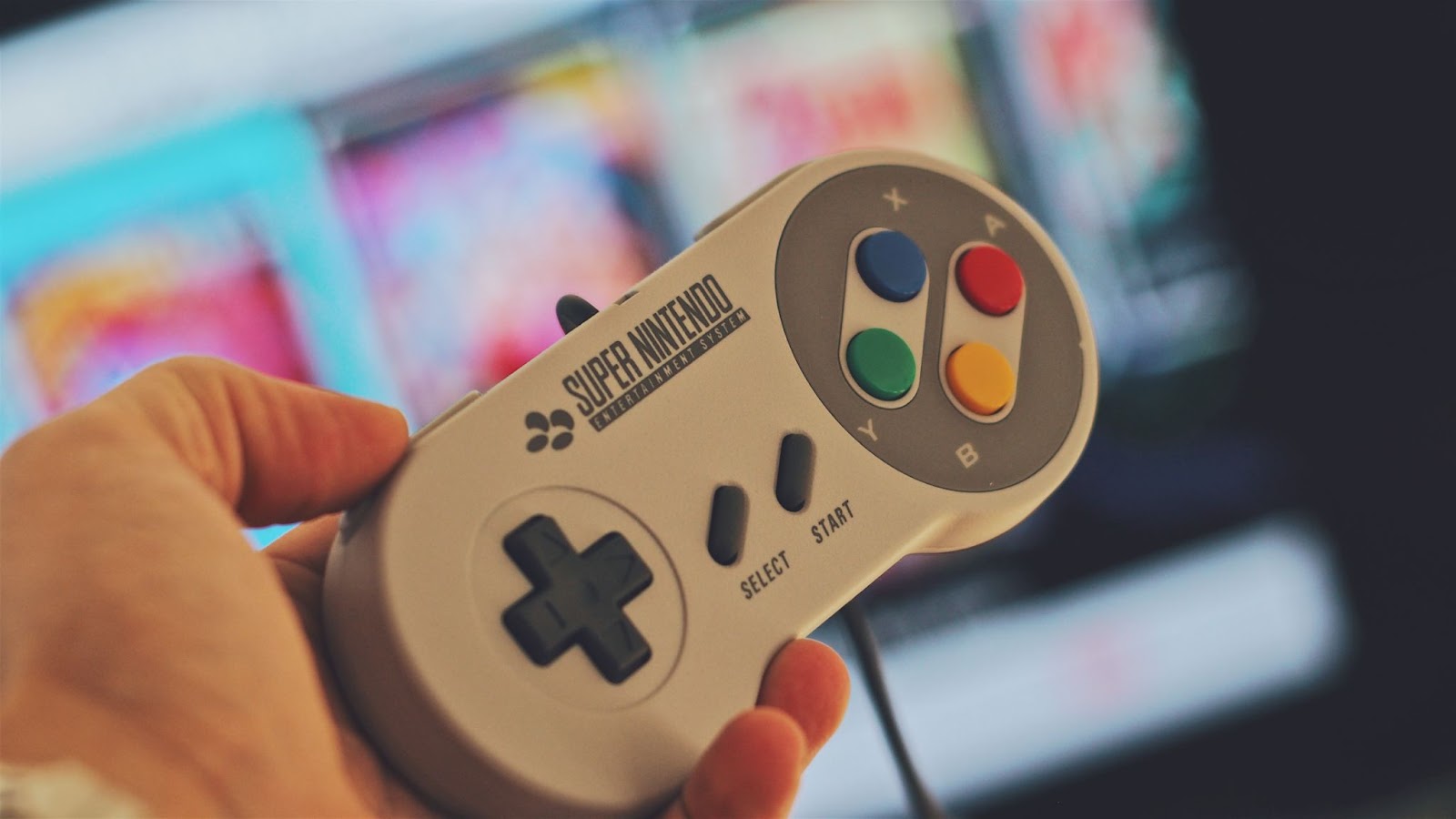
In recent years, esports have been making waves in the world of professional sports as it is gaining more acceptance and popularity. The Olympic Games are the most prestigious sports event and esports has also been seen to proliferate the Olympic environment. But, is there really a potential for esports to make it in the Olympics? Let’s dive into the details and find out.
Is There Esports in Olympics
Esports, or electronic sports, is a term used to connote organized, multiplayer video game competitions between professional players or teams. These competitions can be broadcast to a live audience for spectators and supporters. Esports is an umbrella term used to encompass the several different genres and categories of video games which are played in tournaments and events, most popularly for large prizes. These can range from fast-paced shooter games such as Counter Strike or Overwatch to real-time strategy games such as Starcraft and Age of Empires. With its growing viewership, there has been increasing discussion among regulatory bodies about the possibility of introducing esports into the Olympic Games as an official event.
The International Olympic Committee (IOC) has considered including esports in the main Olympic program since 2017, with it potentially joining other “mind sports” such as chess and bridge in the lineup of events. However, the inclusion of esports in the Olympics would require both changes in regulations and a broader stakeholders’ consensus on what should be represented at that level of competitive gaming. As such, many organizations have studied potential ramifications this might have on competitive gaming worldwide if esports were officially included as an Olympic event going forward.
History of Esports in The Olympics
The first effort to include esports in the Olympic Games occurred in July 2017 when the International e-Sports Federation (IeSF) submitted a request to the International Olympic Committee (IOC) for esports to be considered as a sporting event. The IeSF noted that “The popularity of eSports and its recognition as a sport that requires skill has been growing rapidly worldwide.” Despite this, the IOC flatly rejected the bid to include esports at the Olympics, and stated: “The IOC has recognized that esports could be considered as a sporting activity and we understand and recognize the magnitude of Esports and its influence in society. However, at present, competitions are not recognised by Sports Movement nor does it have an organization with structures ready for coordination or organisation” Since then, there have been several developments attempting to bridge this gap between esports acknowledging its presence in growing awareness worldwide that have brought attention from both Olympic watchdogs, including recently bringing in Mark Nottermann as Chief Esports Officer for Tokyo 2020 Olympics. This article will delve further into other efforts to bring greater recognition of eSports into mainstream consciousness while looking at ways it can be incorporated into Olympics and elaborate on some of its challenges.
Challenges Facing Esports in The Olympics
As esports continues to gain a foothold in the world of professional sports, many are wondering if the Olympics will eventually open its doors to video game competitions. Despite the evolving landscape for esports, there are still several challenges facing the inclusion of esports in the Olympics. Let’s take a look at some of these challenges and explore how esports can eventually become a part of the Olympic Games.
Lack of International Recognition
Despite the growing popularity of esports in the entertainment world, it is still considered a fringe sport. There is a lack of international recognition when it comes to esports, preventing it from making its way into the Olympics. The International Olympic Committee (IOC) only recognizes Olympic Sports Federations as official members, and there are no officially recognized global or international governing bodies for esports. Therefore, the IOC has yet to consider it as an Olympic sport or even consider its inclusion in the Olympics. Furthermore, one major challenge facing esports in the Olympics is that there is no clear structure for competitions and rules for playing video games. The IOC and federations require sports to have an organized governing body with clear rules and regulations before they can recognize them as an Olympic sport. With so many different games and genres in existence, it can be difficult to create standard rules that apply across all types of esports tournaments and matches. Additionally, whereas other traditional sports typically require athletes to undergo rigorous physical training regimens, playing video games mainly involves mental acuity; this makes esports harder to categorize within traditional standards of athleticism imposed by the IOC.
Lack of Standardization
One of the biggest challenges to esport’s inclusion in the Olympics is the lack of standardization, both in terms of game rules and tournament regulations. As esports are relatively new compared to traditional sports, there is a lack of consensus regarding which games should be included, as well as what rules and regulations should govern each game. Without a unified set of rules or governing body, it would be difficult for esports events to gain recognition from Olympic organizers. In addition, with many popular competitive games having multiple international versions, it can be hard for players to agree on a single version, creating confusion about which version will be used in any given tournament. For example, Overwatch has four distinct versions – Japanese, Korean, Chinese and the Global edition – although one may be favored by various events due to licensing contracts. This lack of transparency can create an uneven playing field during tournaments and unfair competition opportunities within games with no unified standard. Unless a universal set of rules and regulations are agreed upon by industry experts and stakeholders alike, it is unlikely that esports will become officially recognized at the Olympic level in the near future.
Difficulty in Establishing a Fair Playing Field
The International Olympic Committee (IOC) officially recognizes several sports organizations, providing unified regulations and standards for competition. This allows them to ensure fairness during competitions and verify the results. As esports has grown, developers need to set rules and guidelines to ensure a fair playing field for gamers. Establishing a truly fair and balanced gaming environment is full of challenges in the world of esports. For example, some games rely on a random spawning system that distributes resources at random throughout the battlegrounds. This can create regions with greater resources that give players an advantage if they happen to spawn there — potentially unbalancing the outcome of matches. Additionally, online competitors are susceptible to problems such as cheating through hacks or mods as well as latency issues due to their connection handicap. These challenges pose significant hurdles when ensuring fair play across all participants and it’s important that game developers create fair competition protocols that comply with the IOC requirements in order for esports to become part of the official Olympics lineup.
Potential Benefits of Esports in The Olympics
With the rise in popularity of competitive gaming, there has been increasing discussion around the potential inclusion of esports in the Olympic Games. The inclusion of esports in the Olympics would bring many potential benefits and opportunities, with the most visible being a massive increase in exposure and recognition of esports at the highest level of competitive gaming. Let’s explore some of the other potential benefits that might come from the introduction of esports in the Olympic Games.
Increased Popularity of The Olympics
The inclusion of esports into the Olympic program is seen as a means to drive up both youth engagement and global audience ratings of the perennial event. The global market for esports has expanded exponentially in recent years, especially among young people. As of 2020, there were over 454 million esports enthusiasts around the world, up from 335 million in 2017, according to NewZoo. This exponential increase in popularity has been met with renewed interest from the International Olympic Committee (IOC). In 2019, IOC President Thomas Bach announced that IOC was “exploring this area” and it’s likely that it may be included as an official sport or demo event at future Olympics. If included officially as part of the Olympics family of sports events, esports could provide unprecedented exposure for competitive gaming around the world and amplify its stature on competitive stages globally. This could help bring additional sponsorships to tournaments and competitions worldwide because it would validate esports as an actual international championship sport in a major way. Furthermore, if included in official Olympic events, this would give athletes who are currently excluded due to lack of recognition on their countries national team—such as disabled gamers—a platform onto which they can excel.
Increased Interest in Esports
The potential inclusion of esports in the Olympics could lead to increased public interest and participation in the gaming industry. This opens up opportunities for rising competitive players, as well as for game developers who are looking for more motivated players and fans alike.
Furthermore, the addition of esports to the Olympic Games could also provide numerous economic benefits to host cities, from increased tourism and job opportunities, to potential sponsorships from companies around the world. Finally, inclusion of esports in the Olympics will also provide recognition as an official sports form. This is an important symbolic step that would give much needed legitimacy to both electronic sports and its avid fans.
Potential For Revenue Generation
One of the key potential benefits of esports in the Olympics is the generation of revenue. With the rising popularity of esports among young adults, broadcasters are likely to invest more in programming and increase their ad revenues from these broadcasts. This could be beneficial for both Olympic audiences and broadcasters alike as there is a possible increase in viewership during certain events such as opening ceremonies or closing ceremonies, or simply for catchy content involving some of the professional esports teams competing globally. As a result, more and more sponsorships will become available to fund longer-term programming agreements with networks that host Olympic events such as NBC Universal’s Olympic coverage. Additionally, ticket sales can potentially increase as spectators will likely be curious and willing to attend an event they might not have had access to outside of their local area or online platform before – due to travel and budget restrictions. Furthermore, merchandise items based on professional teams or athletes have the potential to add additional revenue sources into synergy when coupled with traditional sporting goods lines at modern day convenience stores closer to each venue hosting Olympics events within particular nations. Willingly investing into major shopping experiences at malls near Olympics venues gives spectators another option in carrying around memorabilia from each nation specific games competing for gold medals – whom are fueled by fandom support behind them in efforts towards success!
The Future of Esports in The Olympics
The possibility of including esports in the Olympics has been debated for some time now. With the growing popularity of esports, the International Olympic Committee (IOC) has been in discussions to find a way to include esports in the Olympic Games.
This article will delve into the future of esports in the Olympics, as well as the potential challenges that may arise.

The International Olympic Committee’s Position on Esports
The International Olympic Committee (IOC) is the governing body of the Olympic Movement,responsible for organizing and overseeing the modern Olympics. The IOC has historically had a skeptical attitude towards esports, mainly because esports does not require physical exertion in order to play it at a professional level. Some commentators have argued that this adherence to the traditional definition of sporting activities has caused the IOC to overlook esports’ potential as a legitimate sport deserving inclusion in the Olympics.
The IOC has acknowledged that debate around incorporating esports into the Olympics is building, but they remain focused on promoting traditional athletic pursuits as part of their mission “to bring people together in peaceful sports competition”. At present, only video games whose core activity necessitates physical exertion have been formally accepted by the IOC as Olympic sports, such as Wii Fit plus golf and baseball with motion-sensing controllers.
In 2019, however, the IOC created an Esports Liaison Group tasked with exploring various regulatory and promotional opportunities involving esports on both a global and national level while promoting formal communication between international sports federations and brands within the gaming industry. While this suggests that there is some interest on part of the IOC in moving towards formal recognition of esports at future Olympic Games, analyses by experts suggest it may be some time before any agreement can be reached – partly due to resistance from anti-gaming organizations and policymakers who view dedicating limited resources to promote non-physical activities with suspicion.. At this point it remains unclear if or when esports will become an approved sport within future Olympic Games’ competitions – but only time will tell why developing regulations or policies surrounding them go beyond mere symbolic moves.
Potential For Esports to be Featured in The Olympics
The potential for esports to be featured in the Olympics has been growing steadily. In 2018, the International Olympic Committee (IOC) reaffirmed its intention to “explore this new form of non-Olympic competitive sports.” Similarly, countries such as China, France and South Korea have shown tremendous interest in incorporating esports into their Olympic Games plans.
Esports’ incorporation into the Olympics would make it even more popular with organizations and sponsors around the world. It is estimated that over 20 million people worldwide watched the 2017 League of Legends World Championship. The IOC is considering esports as a medal event since they require teamwork and strategic decision making, two areas that can be used to measure a player’s performance within an Olympic arena. In addition to its growing popularity worldwide, there are a few other things that could make esports attractive for Olympic inclusion: professionalization of gamers, increased gender participation and potential for revenue creation via sponsorships and initiatives such as eGames (Intergovernmental organization established by The Hague). Professionalization of gamers could mean implementing international standards for lawful play or governance — perks which have already been adopted by several tournaments run throughout Europe by the Electronic Sports League (ESL). Gender participation in esports is growing increasingly diverse; however, this could be further encouraged with initiatives such as inviting women players into all-male teams or adding more female commentators and presenters during broadcasts. Finally, incorporating sponsorships could provide additional revenue to recentralize services so that games are more accessible through streaming platforms like Twitch or YouTube Gaming. Overall, it is clear that there are still steps to be taken before esports can become part of mainstream professional sports such as FIFA or NFL leagues — especially when it comes to reformatting how games are presented and managed across global platforms. However, given their growing popularity among global communities combined with their ability to connect all sorts of cultures together through gaming, it would not be surprising if we start seeing some form of Esports included in forthcoming Olympics editions soon enough.
Potential For Esports to be Included in The Paralympics
The possibility for esports to be included in the Paralympics is one that is slowly gaining traction within the gaming industry. This could be a huge gain for competitive gaming, as it brings with it the potential to not only boost the recognition of competitive gaming, but also its accessibility and visibility amongst those with physical or intellectual disabilities. There are several potential benefits of including esports in the Paralympics. These include: providing an accessible platform for people living with physical or mental disabilities, opening up opportunities for people from different countries and backgrounds to compete together, allowing gamers with disabilities to play on an equal playing field without having to adapt their abilities or game style, and potentially creating additional economic opportunities through increased interest in competitive gaming. Additionally, inclusion in the Paralympics could bring esports events greater recognition within mainstream sports media coverage and help gain access to television broadcast deals.

In order for esports to become part of the Paralympic competition, there must first be clear guidelines created by entities such as the International Olympic Committee (IOC) or International Paralympic Committee (IPC). These guidelines must take into account elements such as game type and content that would be suitable for this kind of competition, technical issues like lag and cheating prevention that should be addressed before allowing players into any particular event, medical conditions that could potentially disqualify certain players from participating due to health risks associated with competitive gaming, as well as providing educational resources about competitive gaming etiquette and policy matters concerning competitors’ rights. By taking all of these factors into consideration during deliberations about possibly introducing esports into the Paralympic Games down the line, we can be sure that any decision taken on this matter is one done responsibly that takes into consideration all stakeholders involved – from audiences who will go on to watch these events unfold all over the world unto those who partake in them directly through their gamesmanship.
Conclusion
Despite the potential barriers to esports inclusion in the Olympic program, it is clear that there is already a significant public demand for competitive gaming on the world’s greatest sporting stage. Furthermore, esports have been cited as an effective way to reach and engage demographics of youth that are otherwise disaffected from traditional sports. With these possibilities in mind, it is foreseeable that esports could soon make an official appearance in the Olympic program. It is encouraging that both the International Olympic Committee and several Regional Olympic Committees have created dedicated working groups to facilitate further research and consultation with event organizers and stakeholders throughout the industry. As negotiations proceed through these committees, more details may be revealed about legislation standards for sport inclusion into future Olympic programs. Until such a time when esports are officially recognized in the Olympics, organizations like The Esports Games Federation can offer their own competitions at elite levels and look forward to increased endorsement down the line.




